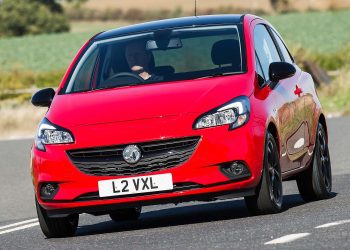Leading car maker Stellantis could stop building cars and vans in the UK unless the government's electric vehicle plans are changed and more is done to boost demand, according to its boss in Britain.
Maria Grazia Davino said the current proposals “could be very damaging”.
Stellantis owns brands including Vauxhall, Citroën, Peugeot and Jeep. It suggested its car plants in Ellesmere Port on Merseyside and Luton in Bedfordshire could close, despite millions of pounds' investment in them, unless “stupid” regulatory conditions change and more is done to help consumers switch to greener vehicles.
Speaking at the Society of Motor Manufacturers and Traders (SMMT) UK conference in London, Ms Davino pointed out that the company has made investments at its sites in Ellesmere Port and Luton.
Stellantis already makes a small electric-powered van at Ellesmere Port and is scheduled to produce medium-size electric vans for the Vauxhall, Citroën, Peugeot and Fiat brands at the Luton plant next year.
Ms Davino cautioned that while Stellantis's investment in both plants demonstrated the company's confidence in them, it was the first step towards a fully electric future which requires “the UK government to stimulate more demand in the electric vehicle market and support manufacturers that invest in the UK for a sustainable transition.”
She said the firm did not want to shut down its UK operations, but could take a decision in “less than a year” if conditions did not improve.
“The demand is not coming. We expect the government whoever it is to respond to this,” she added.
“We work together in the country for the benefit of the health of the economy and the people. Whoever gets to the government they have to listen… In the UK there will be consequences for sure on the production. Stellantis UK does not stop. Stellantis production in the UK could stop.
“You have to make strategies that are based on efficiency. I want to keep the production [in the] UK and I want to be clear on this.”
The original plan for the wider UK car sector was a ban on new sales of petrol and diesel driven vehicles by 2030. The government then changed this date to 2035.
The UK, together with the European Union, have also extended the time period before new rules of origin for the sector will be enforced.
Created as part of the Brexit talks, these require 45 percent of the value of an electric vehicle, and 60 percent of the battery, to have originated in the UK or EU.
The new rules were originally set to come into effect in January this year, but this has now been put back to 2027.
Firms whose vehicles do not meet these rules face being fined as much as £3,400 per imported EU-made EV, and £3,600 for any exported UK-made EV – the equivalent of a 10 per cent tariff. These prices are expected to be passed on to customers.
Unlike the EU – where car makers can meet CO2 reduction targets by selling a mixture of hybrids and EVs – Britain is demanding from this year that companies sell a minimum percentage of fully electric cars or face fines of £15,000 for every non-compliant vehicle sold. .
The government has ruled that 22 percent of all new cars sold must be EVs. According to SMMT data, fully electric cars only made up 16.1 percent of sales through May.
There are still tax incentives in place for corporate fleets to buy EVs, but there are no subsidies for consumers to purchase them, despite being more expensive than petrol equivalents.
Rather than pay fines, Stellantis may import fewer fossil-fuel models into the UK to curtail sales and hit the 22 percent target, Ms Davino said.
Measures that will boost demand include a VAT reduction on sales and on energy, insurance incentives, and a better UK network of charging points, she suggested.
Unless customers saw the advantages in buying EVs they would continue buying conventional petrol or diesel vehicles, Ms Davino warned.
Car lobby group SMMT said the next government needed to work in partnership with the industry to deliver growth worth £50bn in the next 10 years, and help more drivers switch to zero-emission motoring.
Mike Hawes, SMMT president, said ministers had set the industry tough targets which companies were committed to meeting: “To do so we need this government and the next set the conditions which will be the springboard to prosperity.
“The industry has risen to its challenges, now we need our policymakers to rise to theirs. We need an industrial strategy and we need it urgently.”
The SMMT called on the next government to adopt its five-point plan to strengthen the UK car industry
It calls for a green transition policy; a guarantee of net-zero mobility for everyone; a commitment to improve training so workers have the right skills for a green car industry; a trade policy to enable car firms to sell their products all over the world; and a commitment to clean, cheap energy.
Mr Hawes said the prize for delivering these pledges was “massive.” but, “unlike a resignation honor's list none are to be blocked, dropped or delayed for a by-election.”
SMMT research suggests the new car market could grow in value from just over £70bn a year today to almost £80bn every year over the next decade, with more than 17 million petrol and diesel engine vehicles replaced by zero-emission vehicles by the end of 2035.
It said more than a million EV cars and vans could be rolling off production lines every year, increasing the sector's value by 5 percent.


































